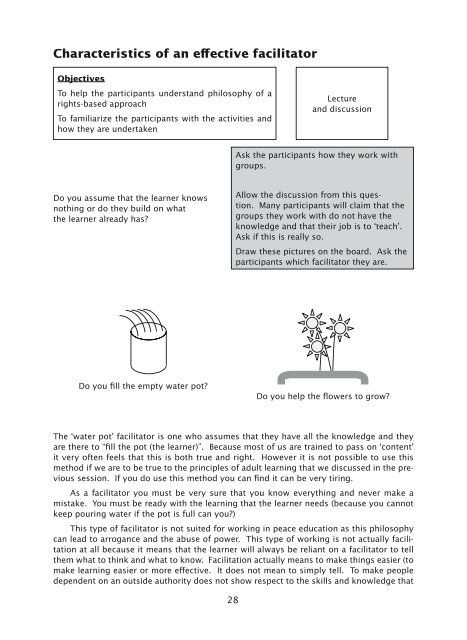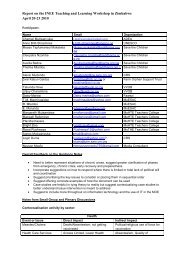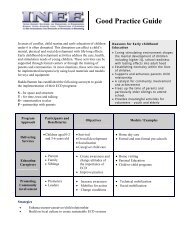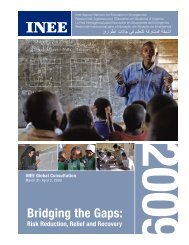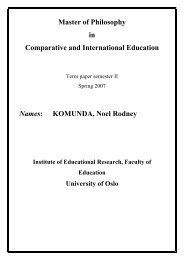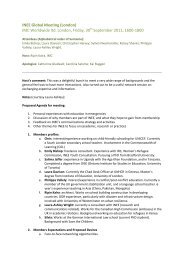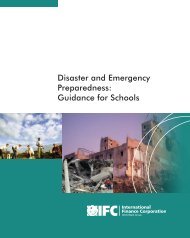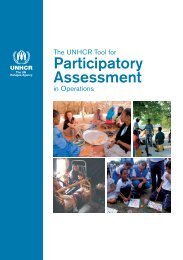Manual for training of facilitators (community component ... - INEE
Manual for training of facilitators (community component ... - INEE
Manual for training of facilitators (community component ... - INEE
You also want an ePaper? Increase the reach of your titles
YUMPU automatically turns print PDFs into web optimized ePapers that Google loves.
Characteristics <strong>of</strong> an effective facilitator<br />
Objectives<br />
To help the participants understand philosophy <strong>of</strong> a<br />
rights-based approach<br />
To familiarize the participants with the activities and<br />
how they are undertaken<br />
Lecture<br />
and discussion<br />
Ask the participants how they work with<br />
groups.<br />
Do you assume that the learner knows<br />
nothing or do they build on what<br />
the learner already has<br />
Allow the discussion from this question.<br />
Many participants will claim that the<br />
groups they work with do not have the<br />
knowledge and that their job is to ‘teach’.<br />
Ask if this is really so.<br />
Draw these pictures on the board. Ask the<br />
participants which facilitator they are.<br />
Do you fill the empty water pot<br />
Do you help the flowers to grow<br />
The ‘water pot’ facilitator is one who assumes that they have all the knowledge and they<br />
are there to “fill the pot (the learner)”. Because most <strong>of</strong> us are trained to pass on ‘content’<br />
it very <strong>of</strong>ten feels that this is both true and right. However it is not possible to use this<br />
method if we are to be true to the principles <strong>of</strong> adult learning that we discussed in the previous<br />
session. If you do use this method you can find it can be very tiring.<br />
As a facilitator you must be very sure that you know everything and never make a<br />
mistake. You must be ready with the learning that the learner needs (because you cannot<br />
keep pouring water if the pot is full can you)<br />
This type <strong>of</strong> facilitator is not suited <strong>for</strong> working in peace education as this philosophy<br />
can lead to arrogance and the abuse <strong>of</strong> power. This type <strong>of</strong> working is not actually facilitation<br />
at all because it means that the learner will always be reliant on a facilitator to tell<br />
them what to think and what to know. Facilitation actually means to make things easier (to<br />
make learning easier or more effective. It does not mean to simply tell. To make people<br />
dependent on an outside authority does not show respect to the skills and knowledge that<br />
28


